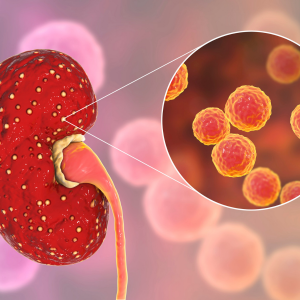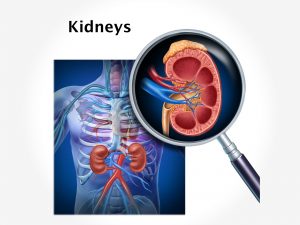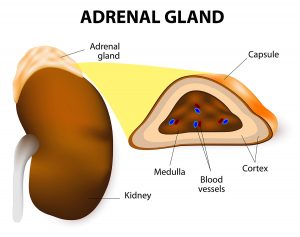Causes and risk factors
Lupus nephritis occurs when the immune system in SLE target kidneys causing its inflammation leading to damage of the parts that filter blood.
Clinical presentation
Patient presents with unintentional weight gain. There is swelling of the leg, feet and ankles. There is presence of foamy urine, dark urine, blood in urine (hematuria). There is increased frequency of urine at night. High blood pressure can occur. Apart from these, symptoms of SLE will be present such as fatigue, loss of appetite, muscle pain, butterfly rash on face, mouth ulcers, arthritis, pitting edema on feet, pleural effusion, and pericardial effusion.
Investigations
Medical history by the patient and clinical examination by the doctor helps in diagnosis. Blood tests are done for levels of urea and creatinine. A 24-hour urine sample is collected for proteins in urine. Urinalysis is done. Abdominal ultrasound is required. Kidney biopsy may be recommended. If the diagnosis is confirmed, doctor will try to determine its stage. The WHO staging of lupus nephritis is as follows:
Stage 1 – No evidence of lupus nephritis.
Stage 2 – Mildest form.
Stage 3 – Earliest stage of advanced lupus.
Stage 4 – Advanced stage of lupus. There is the risk of kidney failure.
Stage 5 – Excessive protein loss and swelling. Doctors will treat with high amount of corticosteroids. Doctors may or may not give immunesuppressing drugs.
Treatment
Treatment involves corticosteroids for reducing inflammation. Immunosuppressive medication to decrease activity of the immune system and reduce development of antibodies that attack kidneys. Medication to reduce blood pressure will also help in managing the condition. Low sodium and protein diet contribute further to the treatment. Dialysis and kidney transplant in case of kidney failure may be required.
Stage 1 – No treatment required for nephritis.
Stage 2 – Can be treated easily with corticosteroids.
Stage 3 – Treatment requires high amount of corticosteroids.
Stage 4 – Patient requires high amount of corticosteroids and immunosuppressive medications.
Stage 5 – Excessive protein loss and swelling. Doctors will treat with high amounts of corticosteroids. Doctors may or may not give immune-suppressing drugs.
Complications
Complications such as kidney failure, high risk of B cell lymphoma, high risk of heart and blood vessel problems can occur.
When to Contact a Doctor
One must consult a doctor if a patient with SLE shows features like swelling of the leg, feet and ankles; presence of foamy urine, dark urine, blood in urine (hematuria), high blood pressure, etc.
Prevention
Prompt and effective treatment of SLE can prevent development of lupus nephritis.
Facts and figures
10-30% patients of SLE develop kidney failure.
Systems involved
Excretory system, cardiovascular system, immune system.
Organs involved
Kidney, heart, blood vessels.






















